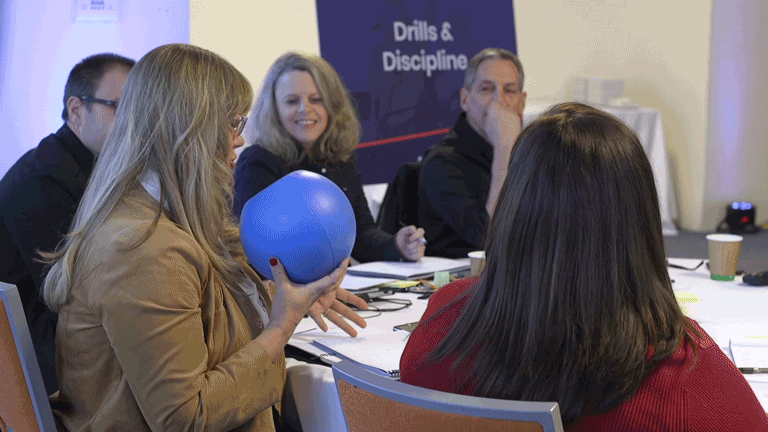As children, we were enraptured by storytelling. Books our parents or teachers read to us in our early years. Stories told by relatives of great loves or adventures they’d had. Movies that were reminiscent of our lives or that we wished were reminiscent of our lives at that early stage.
Storytelling is still a big part of who we are as humans today. Unfortunately, it’s something that too often goes overlooked in business.
You might be thinking, “Well, that’s fine. I’m not a storyteller anyway.” But you are. We all have the capacity to tell stories that can help our businesses succeed… or, at the very least, leverage stories from others to our advantage.
This post is going to show you how to use storytelling for success with the following:
Tell your origin story.
Create a modern-day allegory.
Share your story via social media.
Connect with your people.
Give clients a pedestal.
Tell Your Origin Story
“It's like everyone tells a story about themselves inside their own head. Always. All the time. That story makes you what you are. We build ourselves out of that story.”
Each business has a unique origin story. Rather than gloss over it, why not share it with others? The event that set you on this path could rightly be something that helps others form a deeper connection with you, be it a prospective client, an employee, or others within your community.
Adam Preiser, the bald guy from YouTube who talks about WordPress, shared an origin story of sorts during WP Elevation, too. This one revolved around his recent venture with a little sales funnel builder for WordPress called CartFlows. And how the start of it was anything but smooth.
Sometimes our origin stories aren’t fairy tales that paint us our attempts at success in the best light. But that’s okay. The point of the story is to connect on a human level and share in our experiences; not to dress up our realities in order to impress others.
Your Task:
Take a moment to embrace your business’s origin story. Where were you before this journey of self-employment began? What was the trigger that changed everything? And why did you ultimately take the plunge.
Then, tell it to someone else. You may be surprised by how many people can relate.
Create a Modern-day Allegory
“And do you know what is the most-often missing ingredient in a sales message? It’s the sales message that doesn’t tell an interesting story. Storytelling… good storytelling… is a vital component of a marketing campaign.” Gary Halbert, copywriterWhen it comes to selling your business, it’s easy to get caught up in the what that you do. You build websites with WordPress. You use such-and-such theme. You’ll optimise with a toolkit of plugins. There’ll be designing and writing and testing and, finally, a launch. But if you lead with that every time, your chances of closing a sale will greatly diminish. During WP Elevation Live, WordPress expert, software guru, and all-around masterful storyteller Chris Lema showed us how it’s done.
As Chris explained during his very informative talk about storytelling for success, WordPress consultants should be looking to change the dynamic between themselves and prospects. Don’t rattle on anymore about the services you provide or the cost of doing business with you. If you want to seal the deal, you need to have a compelling story to tell.
Again, this isn’t about being able to spin some yarn about how you swooped in and saved Walmart’s website from declining sales. Just be honest about what you can do.
Remember: you’re already standing on the other side of the river. They don’t want you to tell them the steps for creating a raft to get them across. They want to hear that you know exactly how they feel, that the river is intimidating, but that you have the bridge to get them across safely.
Use stories to predict their pain (whether they’re feeling it now or will soon) and they’ve come to you when they need that bridge.
Your Task:
Think about what the most common fear or pain is that your clients have. Do you understand why it exists and, more importantly, have you been in their shoes before? Write down your own experience with this fear. Then, the next time a prospect comes to you in a similar spot, listen to what they’re saying, acknowledge the fear or pain, and share your story.
Share Your Story via Social Media
“At its very core, marketing is storytelling. The best advertising campaigns take us on an emotional journey – appealing to our wants, needs and desires – while at the same time telling us about a product or service.”
In writing, stories are categorised based on their length. Novels are 60,000 words or more. Short stories are under 6,000 words. And then you have micro stories which are under 100 words.
Some might argue that social media is a way for all of us to share micro stories with the world.
Facebook groups, in particular, have proven to be a great place to do this. You can share stories from your own struggles in business, of a client gone rogue, or the future you hope to make a reality. And you use these stories to find partners, peers, support, and sometimes even clients.
Dana Malstaff, the brains behind Boss-Mom, has mastered the art of storytelling on Facebook. What she shared with us during WP Elevation Live was incredibly valuable. However, it was the bit about what she did to ensure people heard her story on Facebook that was truly impressive.
First, she wisely leveraged well-established groups on Facebook to get her start. She spent a lot of time inside these groups, supporting other members and sharing stories of her own that add value to everyone’s experience.
This way, she was able to make a name for herself within the community before investing a serious amount of time and resources in building her own from the ground up. She also used the search function in Facebook to ensure that she was only engaging in the right conversations.
By always keeping on topic, Dana was able to control her online identity (and story) and steer the direction of her business exactly as she wanted to.
For some of you, this kind of storytelling might not be of much use. Because Dana was attempting to establish her own community, it made sense for her.
Nevertheless, don’t be afraid to get involved with Facebook communities dedicated to your professional niche or personal interests.
As most of our businesses are run in isolation, finding your community and sharing and listening to stories is key to your long-term survival (even if you don’t want to go out and do it in person).
Your Task:
Join a new Facebook Group this month. Not sure where to start?
Digital Mavericks is for anyone trying to make a living off of WordPress. If you want somewhere to share your stories, failures, and successes, it’s a good idea to join this one.
Connect with Your People
“I think the best stories always end up being about the people rather than the event, which is to say character-driven.”
Think of the last time you attended a professional conference or workshop. How would you feel if the speakers stood at the front of the room, talking on and on with barely an acknowledgement of the room full of people before them?
Wouldn’t you get more out of the event if interactivity and personalisation were part of the experience?
If you wanted to be talked at, you could stop by your favourite blog and read articles meant for a broad and passively engaged audience. However, when you attend events, you really should get something more out of the experience.
Like King suggests, the story of the day needs to be less about the event and more about the characters or people.
Community is an important part of the WordPress ecosystem. And it’s a big part of WP Elevation’s model as well. That’s why, when we had our Mavericks mastermind and live event in Santa Monica earlier this year, we gave attendees the opportunity to engage — not just with the speakers, but with one another.
As attendees came together during the event, stories were shared and connections were made.
It didn’t matter where anyone was in their career, what type of work they did with WordPress or even where they lived either. The second people began to share their stories, those differences disappeared.
Your Task:
The next time you meet up with your community in the real world, don’t just be a passive observer. Find someone — anyone — to tell a story to. The reason you joined the community was so you wouldn’t feel so alone, so you’d have others to learn from and to contribute to their growth as well. You never know what kind of reaction your one story might elicit from the others.
Give Clients a Pedestal
“Stories are our primary tools of learning and teaching, the repositories of our lore and legends. They bring order into our confusing world. Think about how many times a day you use stories to pass along data, insights, memories or common-sense advice.”
Edward Miller, writing coach and author
In this final tip for using storytelling for success, I want you to think about how one could glean valuable data and insights from a story. The stories in the above examples almost always deal in emotion:
I felt this pain. And then it was relieved by this solution.
But you can use the stories of your clients to bring more statistical evidence into your storytelling.
This shouldn’t come as too much of a surprise to you. In the designing of a website or a marketing of a business, you’ve likely looked for ways to incorporate user-generated content and other third-party referrals to tell a story on your behalf. That’s because it’s a highly effective way to sell.
That said, there’s much more you can do these days to capture these client stories than to just copy-and-paste a quote to your website (though, you should be doing that to).
For example, you could publish entire case studies around your clients’ before-and-after.
You could record your client in person or using live chat and get them talking about their story so you can share it with others.
WP Elevation did just that during the Mavericks mastermind:
If you have a podcast, those interviews are chock-full of valuable stories worth sharing as well.
However you choose to do it, just keep in mind that this is your client’s story. If they’ve experienced a certain type of pain that you’ve relieved, someone somewhere else has as well. Don’t be nervous about giving them a pedestal to speak up. If you did your job right, their story will speak volumes to the power of working with you.
Your Task:
Reach out to five former clients and ask them if they want to record a video testimonial or be the focus of an upcoming case study. You should never stop asking for testimonials or referrals. Ever.
Storytelling for Success
As you look for ways to improve upon your WordPress business this month, start taking advantage of these storytelling for success strategies.
After all, storytelling isn’t just a tool to get children to behave or to go to bed on time. In business, it’s a powerful tool that helps our prospects, clients, and others put a face to a brand name. To feel a real connection. To understand that their pain is real and understood by someone else.



